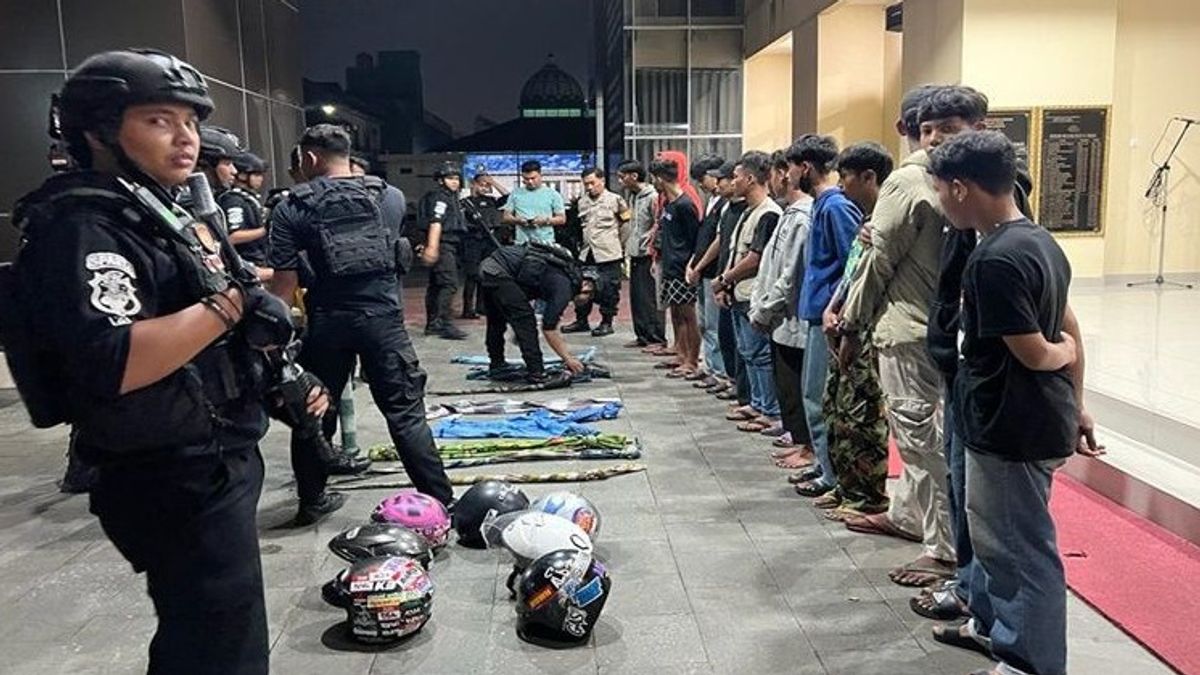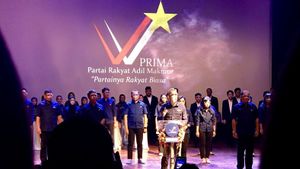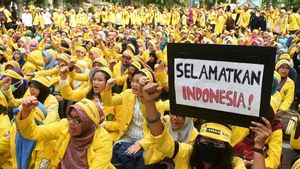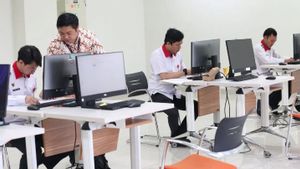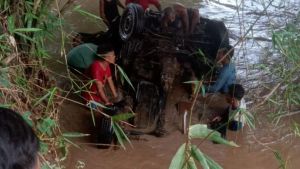JAKARTA – The sarong war was originally a game for teenagers to fill activities in the month of Ramadan. Usually done during school holidays after the tarawih prayer or dawn prayer. This tradition is based on a number of literacies that emerged a long time ago, especially in a number of areas on the island of Java.
As in Banyumas, Central Java. After the morning prayers in congregation at the mosque, the teenagers, whose number can reach tens of people, gather. Removing the sarong previously used for prayer, then folding it, tying it at one end, or rolling it up like a whip. These sheaths are used as weapons in sarong wars.
They then attacked each other using sarongs. Even though some showed serious faces, the aim of the teenagers, said child and education observer Retno Listyarti, was just to have fun, not to hurt. Sarong War: When a fun tradition becomes a Thrilling Event
So that the players just laugh when hit by the end of the opponent's sheath.
It's sad, the situation has changed a lot now. The game, which was originally just for fun to pass the time, turned into an arena for brawls between groups. The sheaths used as weapons were filled with stones, bottles or as iron casings.

Inevitably, the phenomenon of sarong wars during Ramadan often results in victims. Last year, a sarong war between two youth groups in Mandalawangi, Pandeglang, Banten resulted in the death of one teenager.
This year's Ramadan is also similar, sarong wars are again rife in the big cities of Java Island. At Pasar Kemis, Tangerang, on March 25, the police arrested 18 teenagers. In Semarang Regency, Central Java, on March 27, the police also arrested dozens of teenagers. Likewise in Surabaya.
"Apparently, the sheath was not empty, but some had pipes and iron pipes inserted into them. This is what is fatal when it hits your opponent," Retno Listyarti told VOI on March 29, 2023.
Prevention requires the support of all parties, not just the task of the police. Parents should also supervise the movements of their teenagers.
"You need to check your child's social media, because generally sarong war deals are made through social media. Parental supervision plays a very important role in ensuring that after the meal, children who are permitted to pray at dawn in congregation at the mosque do not engage in sarong wars," said Retno.
The public must also help with prevention and immediately report anything suspicious. Such as a crowd of teenagers with signs that they want to fight, and so on.
“Immediately contact the RT/RW around or report to the nearest police number from the location. Police patrols are also very important as a deterrent, severe punishment for those who are actually proven to have committed a crime. Let there be a deterrent effect," said Retno.
Meanwhile, the school must take the initiative to intensively provide understanding to students to fill Ramadan with positive activities.
Equally important, according to Deputy Chairman of the Surabaya DPRD AH Thony, is identifying problems. Two groups of teenagers fighting must have a cause.
“Identification, if the cause is because of racing, for example, it means that teenagers need a place to channel their energy. This is a challenge because when their energy cannot be channeled, the teenagers will look for targets to rebound on," she said as quoted from Antara.
Identity Crisis
Identifying the problem is an important key. In fact, what is happening to teenagers today is a reflection of the fading of the values of the Indonesian people as a nation with God. The sense of affection between people as taught in religion is starting to run low.
Teenagers seem to be experiencing an identity crisis or identity crisis. They love to blaspheme, enjoy hurting, and are prone to being provoked, especially with issues in the name of religion or group.
“It means, we are experiencing a cultural shift. It seems that we are in mass confusion about which values we should believe to be the basis of society," said Prof. Dr. Subroto in the book Indonesia in Your Hands.
This confusion has resulted in the younger generation simply following along with everything that looks good even though it is not in accordance with Indonesian identity and culture.

The attitude of individualism is obvious. Since the school stage, especially those in cities, they are more often introduced to the value of competition than the value of collaboration.
The banners stuck in the school environment always contain words to prepare children to be able to compete in the globalization era.
"Almost never have I seen anyone writing, for example preparing children to be able to build collaborations and synergies at the global level to build a better Indonesia," said Subroto.
また読む:
Actually there is nothing wrong with competition, when this term is interpreted as an effort to push yourself to do your best.
However, if the awareness to compete is not accompanied by an awareness to work together, collaborate, and synergize, then competition will easily encourage someone to justify any means to be a winner.
"The spirit of justifying any means combined with individualism and materialism is one of the clear signs that there is a very serious deviation in the building of our values as a society, nation and as a country which when it was founded had such lofty aspirations," said Subroto.
It is these deviations that ultimately lead to the widening of social inequalities and the absence of justice for the whole society.
"Therefore, before we talk about the challenges we face as a nation, let's first reflect on this fundamental matter," added Subroto.
The English, Chinese, Japanese, Arabic, and French versions are automatically generated by the AI. So there may still be inaccuracies in translating, please always see Indonesian as our main language. (system supported by DigitalSiber.id)
